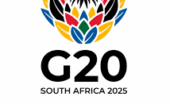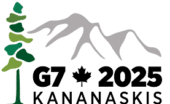Johannah Bernstein post: "eternally proud of my father’s extraordinary aeronautical engineering. legacy. here is a photo of the Canadair Water…
Canada and the UN
Written by Diana Thebaud Nicholson // May 7, 2013 // Canada, United Nations // Comments Off on Canada and the UN
The root of the problem or simply a contributing factor? Canada abandons UN bid in embarrassing turn for Harper
Canada’s hopes of returning to the top body of the United Nations ended in crushing disappointment Tuesday when it withdrew from contention, handing victory to Portugal.
The defeat marks a significant embarrassment for Stephen Harper’s government. It is the first time in more than 50 years Canada has not won a campaign for a temporary seat on the Security Council. (12 October 2010)
******************************
Paul Heinbecker: 2014 is too soon for Canada to run for a Security Council seat
… The UN has become a kind of motherboard of global governance which, together with its “apps,” brings greater order and purpose to world affairs and greater security and progress to people’s lives. In the process, the UN makes it possible for ideas such as the Millennium Development Goals to drive international policy-making and for other organizations. In the descriptive phrase of Richard Haass of the U.S. Council on Foreign Relations, we live in a world of “messy multilateralism,” that entails multilateral, minilateral and bilateral co-operation between governments.
The UN is not sufficient to good global governance but it is necessary. This is part of the reason that while Canada retreats in presumed ideological purity from the UN, countries such as India, Brazil, Japan and Germany work to acquire permanent seats on the Security Council. If we too want to protect our interests and to promote our values effectively, we need to re-engage with the UN, with a clear-eyed appreciation of the organization’s strengths and weaknesses. It is not too late to start, but 2014 is too soon to run for the Security Council.
3 May
Power & Politics: Keeping UN agency in Montreal
MPs discuss Qatar’s pitch to pull an UN aviation agency out of Canada
Tories And PQ Team Up To Keep UN’s ICAO In Canada
Prime Minister Stephen Harper says there is absolutely no reasonable case to move the International Civil Aviation Organization out of Montreal.
(Canadian Press via HuffPost) His comments came shortly after Foreign Affairs Minister John Baird and Quebec cabinet minister Jean-Francois Lisee held a news conference in Montreal to announce a common front to prevent ICAO from moving to Qatar.
Baird said all the parties involved in the bid to keep ICAO in Montreal, including businesses and municipal politicians, are more united than ever.
This is a really helpful contribution.
Michael Den Tandt: Baird has reason to call UN to account
It should look after the world’s needy rather than find fault with Canada
Now, in a development sure to fuel the fire, there’s a move afoot to transplant the International Civil Aviation Organization, a UN agency based in Montreal since 1947, to Qatar. The impetus, reportedly, is Arab unhappiness with Canada’s Middle-East policies.
But here’s a thought. What if Heinbecker & Co. are mostly mistaken about the sanctity, value and essential unimpeachability of the UN? And what if Foreign Affairs Minister John Baird, purveyor of crass moral absolutes in a diplomatic world more comfortable with nuance, is mostly correct? More to the point, politically: What if Baird’s view much more closely reflects popular sentiment, than does Heinbecker’s?
… The Qatari bid, meanwhile, is seen by government critics as being politically motivated and a reflection of Canada’s pro-Israel policy in the Middle East [emphasis added].
2 May
Disgruntled Arab states look to strip Canada of UN agency
(Globe & Mail) Growing discontent among Arab nations over the Harper government’s pro-Israel stand is prompting joint talks on retaliation, with some eyeing a campaign to strip Canada of a major UN agency, the ICAO.
The International Civil Aviation Organization, which sets international rules for airplane transportation, has been headquartered in Montreal since 1947, but Qatar is now bidding to relocate it to the Middle East in 2016, trying to muster votes from 115 countries to approve the move at a meeting this fall.
Some Arab nations are now considering backing the bid as a potential focus for combined efforts to strike back at Canada for its stand on Palestinian issues. It would mark a new avenue for Arab countries that have criticized Ottawa before: a campaign that threatens concrete consequences.
Prime Minister Stephen Harper’s staunch support for Israel and close relationship with Prime Minister Benjamin Netanyahu, and his vocal campaign last fall against the Palestinian bid for observer-state status at the UN, has long been viewed with dismay by some Arab nations.
1 May
Baird: Canada Won’t Compete For Spot On UN Security Council
Canada will focus on other priorities rather than mount a fresh campaign for a spot on the United Nations Security Council, says Foreign Affairs Minister John Baird.
Baird’s disclosure that there’s no new campaign in the works comes after Canada’s failed 2010 campaign to win one of the two temporary two-year, non-veto-wielding seats on the UN’s top body that were available at the time.
24 April
 This was bound to happen sooner or later – and IATA would have to move too. But maybe not yet — see Comment
This was bound to happen sooner or later – and IATA would have to move too. But maybe not yet — see Comment
The Feds have been very generous to ICAO – and presumably will continue to be so – but Montreal is no longer at or near the center of international aviation – the great/successful airlines today are largely based in the Middle East or Asia. In fact, there have been noises about a move previously.
Le Qatar veut ravir l’OACI à Montréal
(La Presse) Dans un document détaillé obtenu par La Presse Affaires, le Qatar formule plusieurs reproches à l’endroit de Montréal et du Canada: l’éloignement de l’Europe et de l’Asie, l’hiver rigoureux, la difficulté d’obtenir des visas canadiens pour les membres des délégations, l’«insatisfaction significative» des diplomates à l’égard des services offerts ainsi que des taxes et des impôts élevés. …
Le Qatar s’engage à construire pour l’OACI un édifice ultramoderne qui «reflétera clairement le statut» de l’organisation et à couvrir la totalité de ses dépenses d’exploitation, alors que le Canada et le Québec en remboursent actuellement 80%. On promet aussi une exemption totale de taxes et d’impôts pour l’OACI et son personnel. … Le ministre des Relations internationales du Québec, Jean-François Lisée, s’est également entretenu à ce sujet hier avec John Baird et a bon espoir que l’OACI demeurera à Montréal. [How delightful that the move of a UN headquarters should bring the sovereignist M. Lisée together with John Baird!]
Pierre Jeanniot, ancien PDG d’Air Canada et de l’Association internationale du transport aérien (IATA), soutient qu’il faut prendre au sérieux l’offensive du Qatar, un pays riche et stable qui peut compter sur des alliés au Moyen-Orient et au-delà.
Selon plusieurs sources, Singapour a exprimé il y a quelques mois son souhait d’obtenir le siège de l’organisation fondée en 1947, mais s’est désisté avant de déposer un projet concret.
2 April
Andrew Cohen: Canada, the world’s new contrarian
(Ottawa Citizen) In itself, there is nothing terribly damning — or even noteworthy — about a sovereign country withdrawing from a modest international convention that it calls ineffective.
… Instead of walking away, we could try to reform it. But we won’t do that because the convention is a “talkfest,”as John Baird insists, which apparently means it talks too much about the relationship between climate change, drought and deserts. This is uncomfortable for an ideological crowd that distrusts science and is suspicious of global warming. Quitting the convention is petty and parochial, but like other decisions at home and abroad, it is relentlessly political, pitched to the loyalists of the Conservative party.
1 April
Steve Saideman: Diplomatic Drought
What possible reason could the Harper government have for pulling out of the UN Convention to Combat Desertification?
(Open Canada) This could also be part of a larger, equally sincere effort to spurn multilateralism, a very Liberal value. Given that the Harper government has spent far, far more on memorializing the War of 1812 than it costs to belong to this convention on desertification, maybe this is just one more way they are trying to alter Canadian nationalism and identity.
Paul Heinbecker: It’s not just the drought treaty. Canada is vanishing from the United Nations
(Globe & Mail) Following the Harper government’s failure in 2010 to win a Canadian seat on the UN Security Council, its disregard of the UN gave way to disdain. Ottawa’s rare appearances at the UN have tended to stress what it regards as Canada’s uniquely “principled” foreign policy, bringing to mind U.S. Secretary of State Dean Acheson’s characterization of Canadian foreign policy in the fifties as “the stern voice of the daughter of God,” and cementing Canada’s long-standing reputation as global mother-in-law.
Because of the links between drought, land degradation, desertification and climate change, withdrawal from the Desertification Convention comes with potentially significant costs. Ottawa’s decision reinforces the impression that it does not care about climate change.
… because the locus of most of the devastation arising from desertification is in Africa, walking away from a treaty whose creation was led by the Mulroney and Chrétien governments reinforces the impression that Ottawa no longer cares about Africa. It is an impression that this government also went to some trouble and expense to try to reverse. Further, because the worst destruction from desertification is happening in the Sahara region, abandoning the treaty sends a mixed signal about the security issues at stake in Mali and the Sahel, and about Canadian mining interests there as well.
29 March
UN Convention to Combat Desertification Responds to Canada’s Withdrawal from Convention
It’s not just the drought treaty: In international law, Canada has withered
By RYAN LISS AND JOANNA LANGILLE
(Globe & Mail) This week Canada indicated that it plans to pull out of a United Nations convention aimed at preventing drought. … This demonstrates a marked disdain for international law and multilateral co-operation on even the most basic of issues. Sadly, however, this decision is par for the course under the government of Stephen Harper and is the latest in a series of actions demonstrating the Conservative government’s isolationist agenda.
Ryan Liss is a Humphrey Fellow in International Human Rights Law and an LLM candidate at Yale Law School. Joanna Langille is a doctoral candidate at the University of Toronto Faculty of Law.
28 March
Why Canada chose to leave a global fight against desertification
Prime Minister Stephen Harper said Thursday that the program has proven too bureaucratic, with less than one-fifth of the money Canada contributes to the convention going to programming. … Former Liberal environment minister Stéphane Dion said the government cannot take any meaningful steps to combat the encroachment of deserts when it is outside an international process that includes every other country on the planet.
2012
3 December
David Petrasek: Principle or Prejudice? Canada’s Misguided Denial of Palestinian Statehood
(CIPS|University of Ottawa) Prime Minister Harper tweeted on Saturday that Israeli Prime Minister Netanyahu had called to thank him for Canada’s “friendship and principled position this week at the UN”. The friendship may be obvious, but one searches in vain for the principle at stake that compelled Canada to vote against non-member observer state status for Palestine. It cannot be found in international law, because Palestine clearly meets the test for statehood in international law, notwithstanding outstanding disputes about its final borders. Nor can any principle arise regarding adherence to Canadian precedent: we recognized the statehood of both South Sudan and Kosovo in recent years, although both had ongoing border disputes.
Foreign Minister Baird insisted that granting Palestine observer state status was “an impediment to peace” and an “end run” around the peace negotiations. Perhaps, therefore, the principle at issue is support for the peace process? Leaving aside the obvious point that at the moment there is no peace process, it is hard to see how upgrading Palestine’s status is the obstacle Baird claims. The United Nations, Canada, and Israel are all committed to a two-state solution. The UN vote is simply a symbolic recognition of Palestinian statehood.
2 December
“More settler than the settlers”: Canada’s UN policy and Israel
Since Israel’s inception, Canada has been at the forefront in its unwavering support of the Jewish state
(Al Jazeera) Canada opposing resolutions dealing with Palestinian rights is not new, nor is it the effect of a particular government or another. Opposing such resolutions has been a core Canadian diplomatic tactic since the creation of the State of Israel in 1948 – by both Liberal and Conservative governments.
8 October
The Central Conundrum of Baird’s UN Speech
by Daniel Livermore
(CIPS Blog) … the problem is that speeches like this, drafted to please domestic audiences, aren’t free rides. They have consequences. People read them. And what the international community will read in this speech isn’t a reasoned critique of the UN Security Council’s ongoing inability to address a key international crisis. Instead, they’ll read an embarrassing tirade, devoid of informed context, that will weigh heavily on Canada’s foreign policy reputation.
3 October
John Baird doesn’t even understand the UN
By Paul Knox*
(Globe & Mail) John Baird demonstrated Monday that he doesn’t understand what the United Nations is, how it operates, his own allies’ efforts to improve it or its potential for helping his government achieve its goals.
*Former Globe and Mail correspondent Paul Knox reported frequently on the United Nations from 1995 to 2003. He teaches in the School of Journalism at Ryerson University in Toronto
2 June
Canada overreacted to news the UN made Robert Mugabe its tourism ambassador
(Toronto Star) Whatever the Tories’ reasons for bailing out of the tourism agency, this was a bogus uproar. It looks like amateur hour down at Foreign Affairs, where $1.4 billion of our hard-earned tax dollars will be spent on diplomacy this year. You’d think the UN desk would know better. Africans are having a laugh at our expense.
Hasn’t the Harper government done enough damage to Canada’s image at the UN without needing to invent pretexts to look foolish? The PM’s disdain for the UN helped cost us a Security Council seat. We’ve forfeited our reputation for even-handedness in the Middle East. We’ve given up on peacekeeping. We’ve squandered what respect we once had as a generous aid donor and green activist. We’re now known more as carpers than contributors. (Emphasis added)



